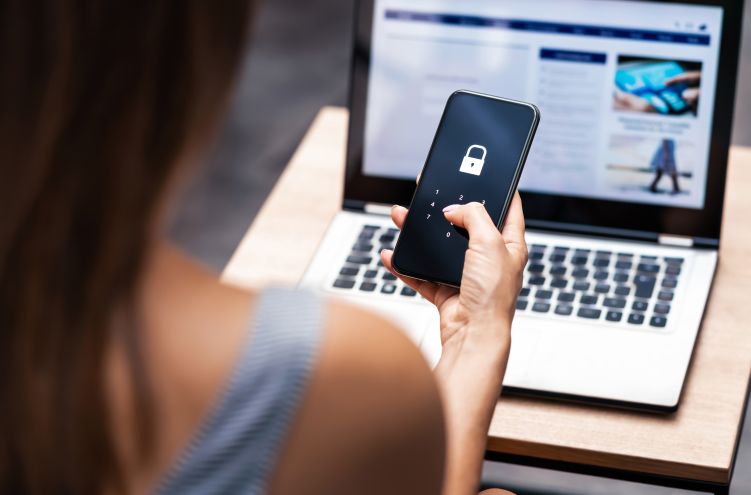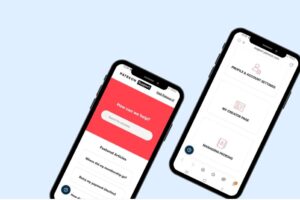Personal data is inarguably valuable to you, and so it is to others. Criminals, for instance, could commit fraud and make money with your social security number, bank details, account login credentials, and health insurance data. They could wipe out your bank accounts, purchase products under your name, carry out financial fraud using your identity, or even use sensitive information for extortion.
There is no end to the risks you can encounter with compromised personal data. So, keeping it secure with adequate precautions is crucial to avoid despair later on. In this article, we discuss everything you need to know to keep your personal information safe.
1. Stay Informed
Building awareness and staying updated is essential to understand how you could lose control of your data and what measures you can take to protect it.
Threats to personal information are primarily three-fold:
- Criminal activity
Scammers, stalkers, extortionists, and other criminals could actively pursue your sensitive and confidential data using various techniques. For example, they can deploy email phishing to trick you into divulging account passwords. They may use an IRS imposter scam to get your tax filing data or launch malware to steal personal information stored in your computer.
But not all criminal activity is digitally initiated: Fraudsters could steal your phone or laptop to access confidential information. They can even rummage through your garbage to find a discarded bank statement or some other personal document.
- Data tracking by organizations
Data has a substantially high price tag in today’s economy. This makes your personal information highly valuable for businesses. It could help them enhance their products and services. They can also monetize it by sharing it with others. This is why many organizations track user data at scale. Tech behemoths such as Google, for instance, could collect an alarming amount of personal details—from your geographic location to search activities.
- Voluntary and involuntary data sharing by individuals
Apart from the active and often discreet data collection practices of criminals and organizations, your voluntary and involuntary actions could compromise your data security, too. For example, the information you post on social media, share on forums, and provide during account signups are all voluntarily disclosed data that could risk your safety one day.
2. Adopt Data Security Practices
Data security measures will help you set up sufficient security barriers and protect personal information.
The basic steps include the following:
- Setting up strong, hard-to-guess login credentials and keeping them safe with a password manager.
- Using a VPN to encrypt network data and remain anonymous online.
- Avoiding public Wi-Fi networks that are unsecured.
- Installing a reputed virus guard. It could prevent malicious attacks on your devices, scan email attachments, and block you from visiting virus-infected websites.
- Regularly updating software to minimize vulnerabilities.
- Limiting the use of apps to only what is essential.
- Deleting unnecessary or unused online accounts together with data contained within them.
- Maintaining backups of important information and storing them separately.
- Keeping your devices secure to prevent theft and loss and protecting them with passwords.
3. Verify Before You Act
Social engineering techniques have made it easier for criminals to mimic ordinary individuals and organizations, win your trust, and gain access to private data. Therefore, verifying information requests is crucial to identify, prevent, and avoid these threats.
Here are the essential steps to know:
- If you receive an email asking for personal, sensitive, or confidential information, give a quick call to the sender to confirm the email’s authenticity. When calling, always use the number you have already saved on your phone or find an official number from a trusted source. Follow this practice for over-the-phone information requests as well.
- Avoid downloading email attachments from unknown senders. If you think it is sent by someone you know, use a virus guard first to scan the documents and verify they are free from viruses.
- Never click on links provided in emails and messages you receive via SMS, social media, WhatsApp, messaging boards, and other channels. Instead, search for the website URL and type it in yourself.
- Make it a habit to look up unknown numbers using PhoneHistory before returning missed calls.
- Install a caller ID app to filter and block spam and scam calls.
4. Share With Care
Your sharing habits could severely compromise information security. An innocent remark, post, image, or video you share today may expose you to unforeseen dangers years later.
To keep your personal details secure:
- Avoid oversharing on social media and other shareable channels such as WhatsApp and Viber. Any information you provide in digital format could easily exchange hands and end up with many more people than its initially intended recipient.
- Be mindful of what you share during account signups, whether you are setting up an account for online shopping, video streaming, loyalty cards, memberships, newsletters, or subscriptions. Always access services in the guest mode where possible.
- Turn off data tracking, collection, and sharing features on social media sites and other websites.
- Delete browser data, including browsing details, download history, cookies, and cache. Prevent your browser from saving login credentials and other personal data, such as form auto-fills, and set up the Do Not Track feature.
- Avoid downloading unverified apps from third-party app stores. These could track your activities, download malware, and steal valuable data.
- Keep hard-copy versions of personal documents in a safe place. These include your ID, passport, birth and marriage certificates, bank statements, and any other material that contains identifiable or confidential data.
- Shred to dispose of printed documents. Discarding them with regular garbage could make them accessible to fraudsters.
To Recap
Your personal information can come under threat in various ways: criminals could initiate different schemes to steal it when you least expect it. Organizations could track, collect, and share your data without your knowledge. You may even share it yourself through voluntary or involuntary action.
The end result is usually the same—you lose control of privacy. Not only that, your safety could be jeopardized in numerous ways. For instance, you could experience identity scams, financial fraud, extortion, stalking, and countless other issues.
All these make data protection extremely important. Start by building awareness and educating yourself about common threats to information safety. Adopt basic data protection measures and learn to verify information requests before you act on them. Sharing with caution is equally essential. A proactive approach to personal information safety could help ward off most data threats and protect you from avoidable troubles.






![YouTube SEO in 2024 [Definitive Guide]](https://getpixie.com/wp-content/uploads/2024/02/shutterstock_1684828252-1-150x150.jpg)








